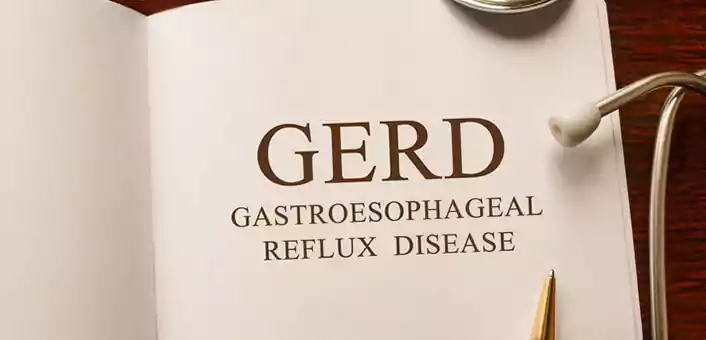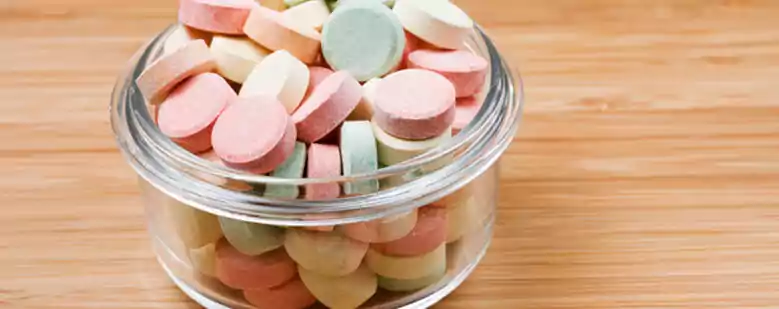
Acid Reflux
The Real Reasons for GERD: What You Need To Know
May 31, 2017Heartburn, acid reflux or GERD (gastro-esophageal reflux disorder/disease): Whatever you choose to call the condition, a majority of us have experienced it at some point of our lives. You may want to believe the only solution to this condition is to pop an antacid for short-term relief. At least, the medical establishment may want you to believe so. But, in reality, the medications you take to “cure” your condition are only making it worse. Because it is not too much acid that is giving you heartburn; it is too little of it!
GERD – An Epidemic?
If heartburn is not addressed early on, it can lead to something worse – GERD, a chronic digestive disorder. Here are some shocking statistics on GERD:
- Around 7million people in the US show symptoms of GERD, making it the most common digestive disorder.
- In 2004, 1,150 deaths in the US were directly attributed to GERD.
- In a large survey by the National Heartburn Alliance, 95% respondents said that they were experiencing symptoms of GERD for more than a year. And 50% of them have had symptoms of GERD for more than 5 years. More than 60% sufferers experienced issues with sleep. And nearly 40% reported that symptoms of GERD hampered their day-to-day activities.
- Globally, approximately 5 to 7% of people show symptoms of GERD, with frequent heartburn as the most commonly occurring one.
Although these statistics are frightening in themselves, they hardly show us the entire picture. The easy availability of over-the-counter antacids makes it easy for patients to self-medicate.
Until recently, heartburn wasn’t considered a serious medical condition and was often attributed to excess of the wrong kinds of foods. However, research has revealed that heartburn can lead to serious and sometimes fatal complications. These include scarring, ulceration, and constriction of the esophagus and sometimes esophageal cancer.
Why is Conventional Theory Wrong?
Advertisements for antacids often depict a “fire in the belly” which is cooled almost instantly after popping an antacid. We are led to believe that heartburn is due to too much acid in the stomach, and the only way to get relief is by neutralizing this acid. You’d be surprised to know that Americans spend more than $13 billion on antacids a year alone. And with sales of $5.1 billion, Nexium is the second highest selling drug in the US.
One of the real reasons for acid reflux is insufficient production of stomach acid. Research has shown that heartburn increases with age. Studies have also shown that the production of stomach acid declines with age. This gives us enough reason to believe that too much acid cannot be a cause of GERD.
The Real Reasons For GERD!
For years now, physicians have been trying to treat GERD the wrong way. Even though we know that an excess of stomach acid does NOT cause the condition, all conventional treatment techniques aim to curb stomach acid. While this approach may provide symptomatic relief, it actually worsens the condition in the long term.
Before we move to the real reasons of GERD, I’d like to introduce a couple of characters in this already thickening plot. One is a muscular valve inside our body called LES, or lower esophageal sphincter. The other is IAP, or intra-abdominal pressur. What’s the connection between the two? We’ll find out soon.
A Weak LES ( Lower Esophageal Sphincter)
The LES is a muscular valve, which separates the esophagus and the stomach. During the normal process of digestion, the LES opens to allow food to pass into the stomach, and prevents the contents of the stomach from flowing back into the esophagus. If the LES is weak or is not functioning efficiently, it can lead to gastroesophageal reflux (a flow back of stomach content into the esophagus).
Intra-Abdominal Pressure (IAP)
And why does the LES malfunction? Is it the real culprit or just a partner in the crime? Let us introduce the second culprit. Researchers have pointed to intra-abdominal pressure (IAP) as the reason behind an inefficient LES. Excess pressure on the stomach (due to gas) causes the stomach contents to flow back into the esophagus.
Inefficient Digestion of Carbohydrates
There can be many reasons for IAP. But the main reason why IAP a causes heartburn is inefficient digestion of carbohydrates, leading to an overgrowth of gut bacteria. And what causes inefficient digestion of carbohydrates and bacterial overgrowth in the first place? Low stomach acid!
Bacterial Overgrowth
Now that we have come a full circle, let us understand why low stomach acid is responsible for bacterial overgrowth. The acidity or pH of stomach acid is less than 3, which makes the environment of the stomach highly acidic. Under such conditions, it is very difficult for bacteria to thrive. But in case of low stomach acid, the pH begins to rise. And when it goes over 5, the conditions become conducive for bacterial overgrowth. This also helps us understand how acid-suppressing drugs can lead to bacterial overgrowth and eventually increase IAP, leading to GERD.
Under normal circumstances, stomach acid is necessary for proper digestion of carbohydrates. The right acidic environment in the stomach activates the secretion of enzymes from the pancreas, which help in the digestion of carbohydrates. But in the absence of sufficient acidity, there is inadequate secretion of enzymes, which makes it difficult to digest carbohydrates.
With low stomach acid, you already have an overgrowth of bacteria that will feast on undigested carbohydrates to ferment them and cause production of excessive gas. This gas increases IAP, which eventually leads to an increased pressure on the LES. This pressure causes LES to open allowing the acidic contents of the stomach to reflux into the esophagus, causing heartburn.
Parting Thoughts
Low stomach acid causes bacterial overgrowth and improper digestion of carbohydrates. This leads to increased intra-abdominal pressure. This pressure puts undue stress on the lower esophageal sphincter and forces it to open. Opening of the sphincter allows flow back of gastric contents, which leads to heartburn and eventually, GERD.
So you see? It is NOT too much stomach acid that causes heartburn, as you have been led to believe for so ling. It is actually too little acid. And popping an antacid is only going to make your condition worse. A healthy diet and dietary supplements can help you treat GERD symptoms from the root.
References:
http://www.gastrojournal.org/article/S0016-5085(07)01843-4/abstract
https://link.springer.com/article/10.1016%2FS1091-255X%2800%2980032-3





